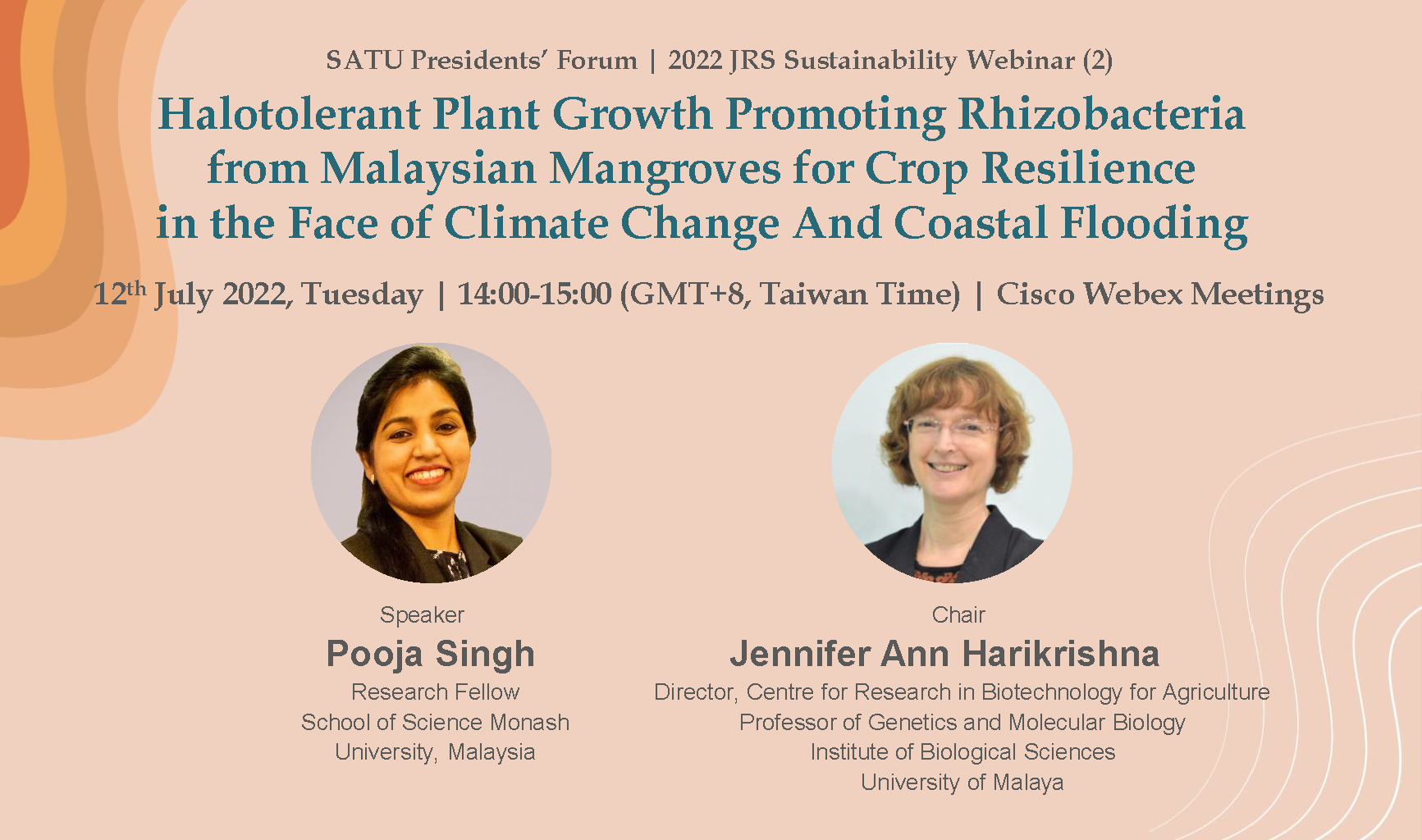2022 JRS Webinar (2) | Halotolerant Plant Growth Promoting Rhizobacteria From Malaysian Mangroves For Crop Resilience In The Face Of Climate Change And Coastal Flooding

2022 JRS Sustainability Webinar Series (2)
Halotolerant Plant Growth Promoting Rhizobacteria
from Malaysian Mangroves for Crop Resilience in the Face of Climate Change and Coastal Flooding
Date: 12 July 2022 (Tuesday)
Time: 14:00 - 15:00 (GMT+8 Taiwan)
Language: English
Way of Participation: Cisco Webex Meetings
Registration: HERE
Other JRS Webinars: HERE
u Speakers u
Dr. Pooja Singh
Research Fellow, School of Science Monash University, Malaysia
u Chair u
Prof. Dr. Jennifer Ann Harikrishna
Director of Centre for Research in Biotechnology for Agriculture
Professor of Genetics and Molecular Biology
Institute of Biological Sciences
University of Malaya
u About the Webinar u
Crop plants such as bananas are salt sensitive and decrease yield with the rising level of salt in the agricultural fields. Plant growth-promoting rhizobacteria play role in crop protection in climate change, however, no halotolerant PRPR have been reported with limited knowledge on their application in crop protection. To address this, we characterized halotolerant bacteria from Malaysian mangrove forests and explored their effect on morpho-physiological and biochemical parameters and their role in regulating salt-responsive genes in banana plantlets under salt stress. A total of three rhizobacterial and two endophytic bacterial isolates were collected from the roots and rhizosphere of Rhizophora apiculata, Avicennia alba, and Sonneratia alba, and were found to tolerate up to 400 mM of sea salt. 16S rRNA gene sequencing revealed the isolates as Bacillus sp. and endophytic bacteria as Pseudomonas sp. FESEM observation confirmed colonization of each strain on banana plantlet roots. Colonized plantlets when subjected to 90 mM salt and compared to uninoculated (control) and mock-inoculated plants showed improved plant growth. Biochemical analysis of plantlets revealed that root colonization with bacterial isolates enhanced levels of plant chlorophyll, carotenoid, and proline, while plantlets also showed reduced MDA content and reduced generation of ROS significantly. Antioxidant enzymes also showed enhanced activity with bacterial isolates. Our results indicate that these halotolerant Bacillus and Pseudomonas strains from the mangrove have multifunctional plant growth-promoting activity and can reduce salt stress in bananas. This data provides a reference for exploring halotolerant microbes from hypersaline environments to overcome salt stress in plants.
u Webinar Recording u
Enquiries
SATU Presidents’ Forum International Secretariat
satu@ncku.edu.tw | 886-6-2099250 | 886-6-2757575 #50960
https://satu.ncku.edu.tw/
